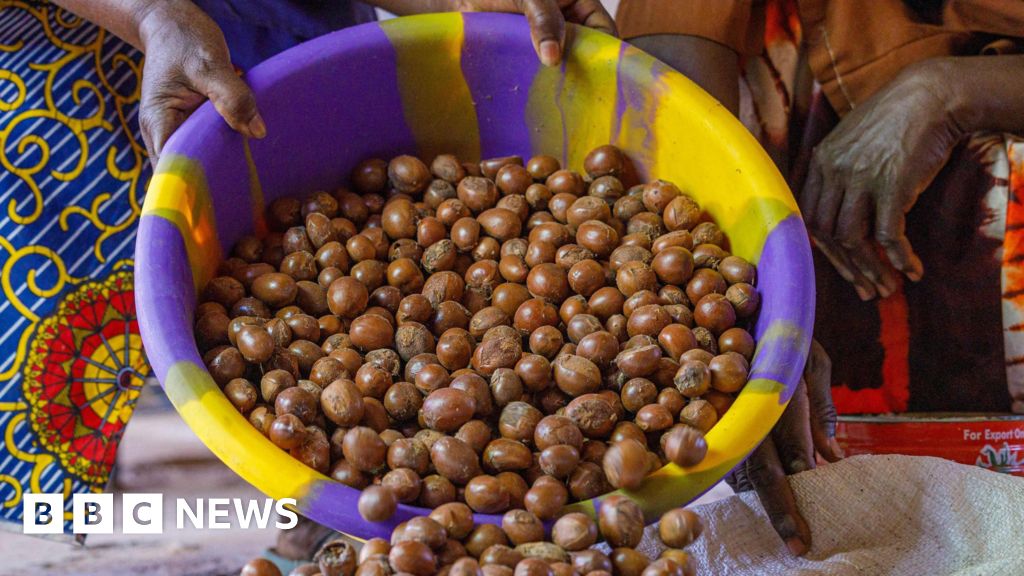In Nigeria, the festive season evokes scenes reminiscent of a dramatic film: emotional airport reunions, vibrant Afrobeats parties, and jubilant crowds as members of the diaspora flock home for the holidays. Known as "I Just Got Back" (IJGB), these returning Nigerians bring more than just laughter and joy; they enhance the economy but simultaneously amplify economic disparities that many locals face.
The paradox of wealth and poverty is especially pronounced during "Detty December," a term used to describe celebrations around Christmas and New Year. While international visitors revel in luxury locations, many residents in Lagos and Abuja feel the pressure as escalating prices and overburdened infrastructure make the cities nearly unmanageable. This festive season, radio presenters and citizens alike voice their concerns, pondering whether holiday celebrations, greeted with the return of the IJGBs, bridge Nigeria's class divide or widen it.
The wealth imbalance in Nigeria is stark and troubling. According to Oxfam, roughly 10% of the population owns over 60% of the total wealth, while the World Bank estimates that around 87 million Nigerians live below the poverty line, contributing to the world’s second-largest population in poverty after India. Academic opinions, such as that from Professor Martins Ifeanacho, indicate that Nigeria's economic disparity has been exacerbated by political elite greed, making it increasingly difficult for average citizens to thrive.
Class structures in Nigeria are intricate, where wealth often dictates social interactions and opportunities, creating an environment of disparity that locals are acutely aware of. Observers note that even in dining experiences, social differences manifest in how quickly patrons receive service based on the car they arrive in. The pressure of perceived success fuels aspirations of leaving Nigeria altogether, especially for young Nigerians; a 2022 survey revealed that 70% would relocate if opportunities arose. This phenomenon, known as "japa," reflects a yearning for better prospects and quality of life.
Despite the odds, many IJGBs return home hoping to reclaim their status and share their successes with friends and family. The desire to showcase themselves as heroes upon their return can lead to displaying wealth that may not be as substantive as it appears, opening conversations about authenticity versus facade.
Social media and personal narratives amplify this gap, revealing that some IJGBs may struggle to maintain misleading appearances, with reports of financial disputes surfacing after events. This highlights a societal tension that prioritizes perception as a currency just as valuable as real wealth, further complicating the landscape of social mobility within Nigeria.
Ultimately, the presence of Nigerians abroad during festive periods speaks volumes about the country's evolving class structure, raising crucial questions about equity, opportunity, and the true impact of the diaspora on local communities. As the allure of success persists, the implications for the socioeconomic fabric of Nigeria will remain significant.
The paradox of wealth and poverty is especially pronounced during "Detty December," a term used to describe celebrations around Christmas and New Year. While international visitors revel in luxury locations, many residents in Lagos and Abuja feel the pressure as escalating prices and overburdened infrastructure make the cities nearly unmanageable. This festive season, radio presenters and citizens alike voice their concerns, pondering whether holiday celebrations, greeted with the return of the IJGBs, bridge Nigeria's class divide or widen it.
The wealth imbalance in Nigeria is stark and troubling. According to Oxfam, roughly 10% of the population owns over 60% of the total wealth, while the World Bank estimates that around 87 million Nigerians live below the poverty line, contributing to the world’s second-largest population in poverty after India. Academic opinions, such as that from Professor Martins Ifeanacho, indicate that Nigeria's economic disparity has been exacerbated by political elite greed, making it increasingly difficult for average citizens to thrive.
Class structures in Nigeria are intricate, where wealth often dictates social interactions and opportunities, creating an environment of disparity that locals are acutely aware of. Observers note that even in dining experiences, social differences manifest in how quickly patrons receive service based on the car they arrive in. The pressure of perceived success fuels aspirations of leaving Nigeria altogether, especially for young Nigerians; a 2022 survey revealed that 70% would relocate if opportunities arose. This phenomenon, known as "japa," reflects a yearning for better prospects and quality of life.
Despite the odds, many IJGBs return home hoping to reclaim their status and share their successes with friends and family. The desire to showcase themselves as heroes upon their return can lead to displaying wealth that may not be as substantive as it appears, opening conversations about authenticity versus facade.
Social media and personal narratives amplify this gap, revealing that some IJGBs may struggle to maintain misleading appearances, with reports of financial disputes surfacing after events. This highlights a societal tension that prioritizes perception as a currency just as valuable as real wealth, further complicating the landscape of social mobility within Nigeria.
Ultimately, the presence of Nigerians abroad during festive periods speaks volumes about the country's evolving class structure, raising crucial questions about equity, opportunity, and the true impact of the diaspora on local communities. As the allure of success persists, the implications for the socioeconomic fabric of Nigeria will remain significant.






















